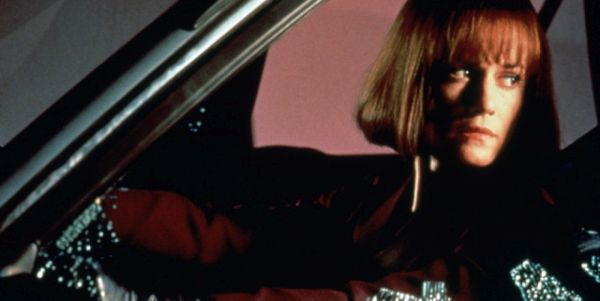A novel is a single voice from a single point of view. A movie is a mix of art and business with hundreds of people from carpenters and actors to camera operators and art directors contributing to the big screen adaptation. Is it fair to compare a novel to its movie counterpart?
Cronenberg’s Crash
In 1973 J. G. Ballard wrote a controversial novel with characters turned on and sexually aroused by victims of car accidents. The literary piece was shunned by Hollywood for being too graphic and violent. It was considered… unfilmable.
Twenty five years later, legendary Canadian film director David Cronenberg, along with actors Holly Hunter, James Spader, Deborah Kara Unger, Elias Koteas and Rosanna Arquette captured a film version of Ballard’s book on celluloid. Cronenberg seemed to be attracted to controversial literary material. He was after all, the director to tackle ‘Naked Lunch’ by William S. Burroughs earlier in the 90’s – also thought to be unfilmable.
I was a film journalist and a recent film production graduate at the time Cronenberg released his version of Ballard’s ‘Crash’ in 1996. Banned from many screens, his adapation created an uproar and the legendary film director was confronted at the Edinburgh International Film Festival while promoting the psychological thriller.
Meeting The Readers’ Expectations
“I feel you have taken a book I enjoyed very much and ruined it,” yelled out an annoyed festival attendee.

Cronenberg may come off as quirky and some may say perverse, considering the subject matters in his films, but he extremely intelligent and handled the heckler with poise and respect. This included ultimate respect for the book authors he has adapted too.
“I have not changed or altered a single word of Ballard’s book,” Cronenberg calmly stated. “The book is still the book and you are free to enjoy this at any time. I have simply crafted my version of his work on film and I respect that it may not be how you saw the source material as you read it.”
He went on to say that as people read books they inevitably play the words out as pictures in their heads and no two movies played out are the same. He then challenged the heckler to make their own version of the film, which he offered to watch and review. Then it went silent.
Cronenberg made a good point. We should never expect the book and the movie version to be the same. They are completely different. They become two unique pieces of entertainment only based on a single source.
Controversies surrounded the casting decisions on the big screen version of ‘Fifty Shades of Grey’. “I’m terrified,” E. L. James said in an Entertainment Weekly interview published back in November 2013. “This is huge. And there is this passionate fandom; we need to get this right for them.”
No matter what happens, the Fifty Shades of Grey movie is director Sam Taylor-Johnson’s version and it is almost impossible to live up to fan expectation because as readers we all see a different movie rolling around in our heads. ‘Harry Potter’ and ‘Lord of the Rings’ seemed to get it right for most, but most miss the mark.
Adapting My Own Book
In 2014, I took on the directing duties for my own work, from a screenplay I drafted with Todd Gordon. Will The Pineville Heist movie satisfy my fans? Good question. It’s rare for authors to also be film directors. While I will maintain 100% creative control over all aspects of the production – which should help maintain a single sense of vision – I will still be at the mercy of my fans.
No matter what, every time you release something creative into the world – whether it’s a book, a movie, a painting or a song – the material lives with each fan and holds a unique flavour for them specifically. Accept you can’t please everyone. Also, accept that your book – your words – will always be yours and no director is actually changing a single sentence. They are in effect: creating something new. For better or for worse.
[vc_row][vc_column width=”1/6″][/vc_column][vc_column width=”4/6″ css=”.vc_custom_1468980127254{background-color: #efefef !important;}”][vc_column_text]
Guest Author
Lee Chambers
Lee Chambers is the author of ‘The Pineville Heist’ which has sold over 42,000 copies in paperback, ebook and audiobook formats. The movie version, distributed by Black Wolf Media Group won Best Narrative Feature at the Illinois International Film Festival and Chambers took home Best Director at the 2016 Hoboken International Film Festival.
Find Lee Chambers on Twitter and Facebook, and watch the trailer of his film here.
[/vc_column_text][/vc_column][vc_column width=”1/6″][/vc_column][/vc_row]Does content like this matter to you?
Become a Member and support film journalism. Unlock access to all of Film Inquiry`s great articles. Join a community of like-minded readers who are passionate about cinema - get access to our private members Network, give back to independent filmmakers, and more.